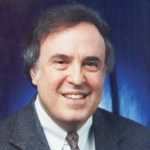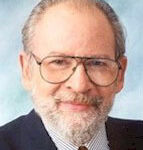The U.S. Supreme Court today agreed to scrutinize a narrow aspect of the Environmental Protection Agency’s power to regulate greenhouse gas emissions from stationary sources of pollution, including power plants and factories. The Court declined to hear an appeal that challenged EPA’s endangerment finding on carbon dioxide, which treats the gas as a harmful pollutant.
The Heartland Institute has submitted several comments and briefs in response to rulings by the Environmental Protection Agency, including: “Comments in response to EPA’s ANPR entitled Regulating Greenhouse Gas Emissions Under the Clean Air Act” in 2008; an amicus brief in support of the Deseret Power Electric Cooperative in 2008; “Comments in Response to Proposed Endangerment and Cause or Contribute Findings for Greenhouse Gases” in 2009; and “Comments to EPA (MACT): Standards of Performance for Greenhouse Gas Emissions for New Stationary Sources: Electric Utility Generating Units” in 2012.
The following statements from experts in environment policy and legal affairs, and policy advisors at The Heartland Institute – a free-market think tank – may be used for attribution. For more comments, refer to the contact information below. To book a Heartland guest on your program, please contact Director of Communications Jim Lakely at [email protected] and 312/377-4000 or (cell) 312/731-9364.
The Heartland Institute in September published Climate Change Reconsidered II: Physical Science, an examination of peer-reviewed science by the Nongovernmental International Panel on Climate Change (NIPCC). Digital copies of the 1,000-page report and 20-page Summary for Policy Makers is available at ClimateChangeReconsidered.org.
“The Supreme Court’s decision to reject an appeal of its 2007 decision in Massachusetts v. EPA is seriously bad news. For energy consumers – and that is all of us – it means the court will stand by and do nothing while the Obama Administration wages war on fossil fuels. That war already has raised energy costs unnecessarily and threatens to cause electrical rates to ‘skyrocket’ (in then-candidate Barack Obama’s own words). For citizens concerned about the integrity of the Constitution – and that should be all of us – the court gave a free pass to a rogue agency of government that threatens our most basic economic liberties. And for those aware of the collapse of support in the science community for the theory of man-made global warming, the court let stand a decision that accepted without question some of the worst junk science ever to be allowed to be introduced in a courtroom.
“The court missed an opportunity to examine the underlying science of the man-made global warming hypothesis. As the recent release of the report by the Nongovernmental International Panel on Climate Change (NIPCC) makes clear, there is no scientific basis for EPA’s ruling because there is no likely threat to human health and well-being. The court could have ‘looked under the hood’ at the science behind the global warming movement and made its own informed decision. Now it is up to Congress to use its ‘power of the purse’ to rein in the EPA.”
Joseph Bast
President
The Heartland Institute
[email protected]
312/377-4000
“The justices did an injustice to the American people by not hearing challenges to the seriously flawed endangerment finding. The EPA’s own Office of Inspector General (OIG), an independent auditing office within the agency, concluded that EPA did not follow all the peer review procedures it was supposed to follow in developing the scientific document supporting its endangerment finding.
“In its report, ‘Procedural Review of EPA’s Greenhouse Gases Endangerment Finding Data Quality Processes,’ the Inspector General concluded that the process of developing EPA’s endangerment finding did not comply fully with applicable peer review requirements. The Inspector General determined the 2009 finding needed to follow the procedures for peer review of a ‘highly influential scientific assessment’ as defined by the Information Quality Act. The Inspector General’s office found the agency failed to release publicly the results of its peer review process and the office drew issue with the fact that one of the peer reviewers was an EPA staff member.”
Joseph D’Aleo
Executive Director, Icecap.us
Policy Advisor, Environment Policy
The Heartland Institute
[email protected]
312/377-4000
“The U.S. Supreme Court has made a colossal mistake by concluding that they won’t review the EPA’s misguided decision that carbon dioxide (CO2) emissions endanger public health and the planet. Since CO2 is not a pollutant, the only conceivable reason to regulate emissions would be if they were causing dangerous climate change or ocean ‘acidification.’ But the empirical evidence collected across the world and assessed by thousands of scientists whose research is cited by the Nongovernmental International Panel on Climate change shows clearly that neither of these fears are even remotely likely.”
Tom Harris
Executive Director
International Climate Science Coalition
Policy Advisor, Energy and Environment
The Heartland Institute
[email protected]
312/377-4000
“Today’s Supreme Court decision to decline hearing the appeal that challenged EPA’s endangerment finding on carbon dioxide, which treats the gas as a harmful pollutant, is further confirmation of the inability of the majority of justices to see either the forest or the trees.”
David Littmann
Senior Economist
Mackinac Center for Public Policy
[email protected]
989/631-0900
“This is yet another example of why the evolved government fails to represent the best interests of the country. A nine-member oligarchy was never meant to rule us. Who gave the Supreme Court the right to make decisions reversible only unto itself? CO2 as a Supreme-Court-defined ‘evil’ leads to far-ranging detrimental EPA results. CO2 needs to be removed from the reeducation list and returned to its rightful status as a basic good of nature. We should not have to beg the Imperial Nine to do what logic and necessity require.”
Christopher Garbacz
Director of Economics and Planning Division
Mississippi Public Utilities Staff
[email protected]
312/377-4000
“However encouraging it may superficially appear from the standpoint of constitutional government and separation of powers, the U.S. Supreme Court’s decision to determine whether the EPA is acting lawfully in setting up permit requirements for stationary sources of pollution is too little, too late.
“Although wisely not injecting itself into whether carbon emissions threaten public health and contribute to climate change, the court’s refusal to revisit its 2007 decision ordering the EPA to consider regulating greenhouse-gas emissions reflects a court that remains in too many ways political and not jurisprudential. If the Affordable Care Act case is any indication, then look for a further extension come June of what the U.S. Chamber of Commerce has labeled in its briefs ‘the costliest, farthest-reaching and most intrusive regulatory apparatus in the history of the American administrative state.’ “
David L. Applegate
Policy Advisor, Legal Affairs
The Heartland Institute
[email protected]
312/377-4000
“We thought this case appropriately presented to the Supreme Court the broad and crucial question of EPA’s power to make an endangerment finding on carbon dioxide, which treats a harmless natural byproduct of human respiration as a dangerous pollutant. Obviously, the court did not agree. We appreciate the court taking up the narrower question of EPA’s power to regulate greenhouse gas emissions from stationary sources of pollution, including power plants and factories, and we look forward to its judgment on that issue. Meanwhile, we will search for a case that appropriately presents the bigger question for court consideration in its time.”
Chris Robling
Policy Advisor, Legal Affairs
The Heartland Institute
[email protected]
312/377-4000
“The decision not to review the endangerment finding is particularly disappointing in light of the overwhelming body of observational evidence that computer climate models that are the sole basis of fears of dangerous global warming vastly exaggerate the warming effect of added carbon dioxide. This action by the court could mean that Congress will have to legislate to strip EPA of the authority it arrogated to itself when it presumed to regulate carbon dioxide under the Clean Air Act.”
E. Calvin Beisner, Ph.D.
Founder and National Spokesman
Cornwall Alliance for the Stewardship of Creation
[email protected]
703/569-4653
“In 30 years, EPA hasn’t issued a rule with supporting evidence that it did not pay for, or with evidence that was not contradicted by evidence EPA did not pay for. No objective evidence for a rule-making, no more EPA rule-makings. It is that simple.”
Brian G Valentine, D Engr
General Engineer
Office of Energy Efficiency & Renewable Energy
U.S. Dept of Energy
[email protected]
202/586-9741
“There is simply no hiding the devastation this decision causes. The simple refutation of the EPA is there for any sane person to see. Yet the Supreme Court, much like with Obamacare, chose to sit on the side and allow the destruction of the American Dream to proceed – even though its based on lies.
“Given what we see across the board today, this is par for the course. There is a force that hides truth – and by doing so, allows the light of America to dim each day. This decision only affirms that.”
Joe Bastardi
Chief Forecaster
Weatherbell.com
312/377-4000
[email protected]
“This case reminds me of the asbestos scandal, as well as the chlorofluorocarbon vs. the ozone layer misery. Now we are fighting this new hype: the asserted ‘climate change’ by heat-trapping ‘greenhouse gases,’ especially carbon dioxide. I started opposing this hype publicly in 1989.
“CO2 is the ‘gas of life.’ Without CO2 life on this planet would have big problems. Carbon isotopes show that just some 4 percent of the atmospheric CO2 comes from man’s burning of fossil fuel. Hence the asserted rise in atmospheric CO2 is not mainly due to man, but caused by nature. This is enough information to stop this hype – if anyone cares to listen.”
Tom Segalstad
Resource and Environmental Geology
University of Oslo, Norway
312/377-4000
[email protected]
“I am not much encouraged by the fact that the Supreme Court is going to revisit the question of whether carbon dioxide (CO2) emissions must be reduced to save the Earth from global warming. The issue before the court will be whether the Environmental Protection Agency was justified in setting new permit requirements for stationary sources such as power plants and factories.
“The court has already ruled that CO2 – whose importance to all life on Earth is comparable to oxygen – is a ‘pollutant,’ a conclusion that defies logic and the known science that CO2 plays no role whatever regarding the Earth’s climate. It ignores the fact that, while levels of CO2 have risen, the Earth has not warmed for the past fifteen years or more. There is no global warming. And it ignores the fact that a single volcano eruption puts more CO2 into the atmosphere than all the power plants in the USA could in a year’s time.
“It ignores, finally, that every single human being on Earth exhales approximately six pounds of CO2 every day and that imposing emissions limits on the USA ignores all the CO2 emissions from other nations worldwide. The Court has already demonstrated its ignorance regarding the simple science involved, but it does have a chance again to reverse seriously damaging the economy. Let’s hope they take it!”
Alan Caruba
Founder, The National Anxiety Center
Policy Advisor, The Heartland Institute
[email protected]
312/377-4000
The Heartland Institute is a 29-year-old national nonprofit organization headquartered in Chicago, Illinois. Its mission is to discover, develop, and promote free-market solutions to social and economic problems. For more information, visit our Web site or call 312/377-4000.












